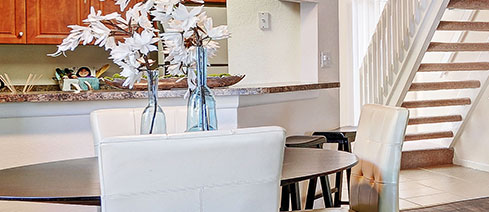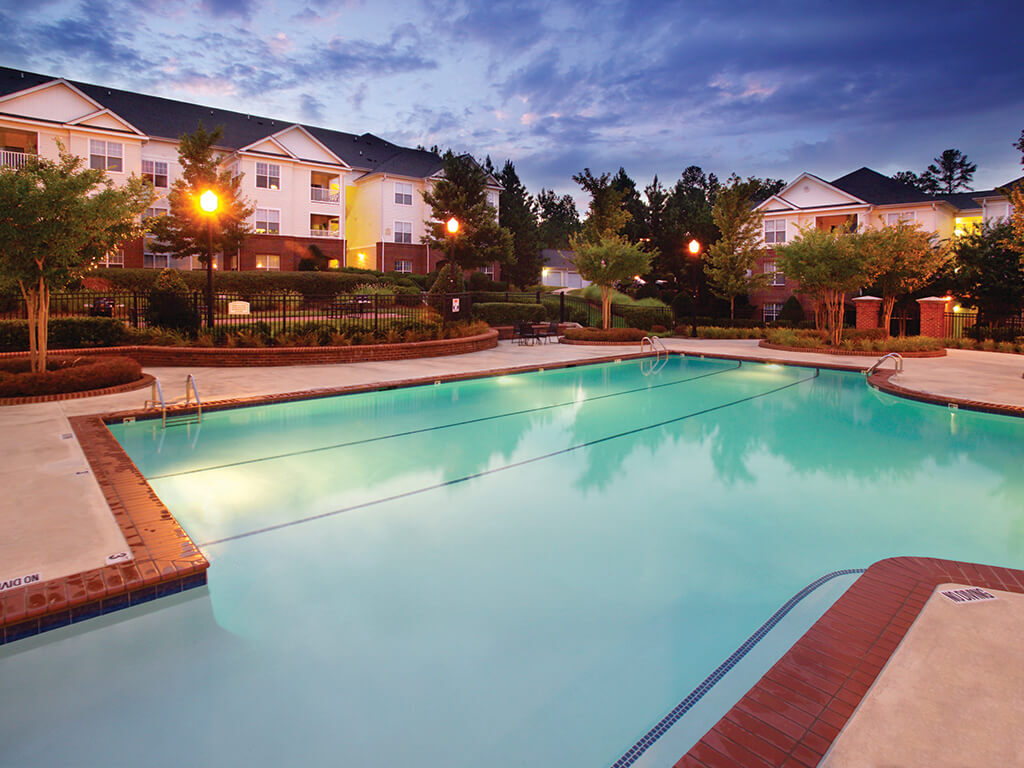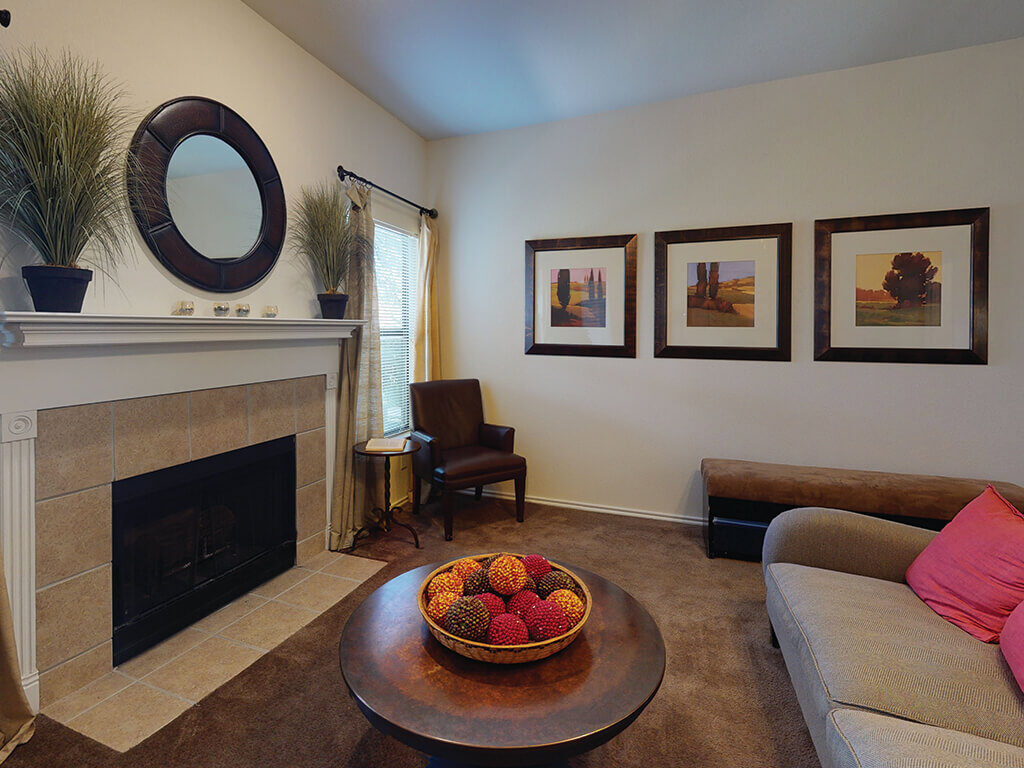
Apartmentality
An Apartment State Of Mind

Affordable Housing Options Available at Fairfield Communities
September 30, 2021
“Affordable housing” is a hot topic in conversation today, given the nation’s current housing crisis. To some, it’s not only a controversial topic but also a confusing one. For others, it’s a conversation whose time has come. Fairfield is doing its part to meet the increasing demand by offering income-eligible individuals and families a variety of affordable housing options.
“Every person deserves a roof over their head. They deserve a safe place to be able to raise their family, and I am thrilled to be a part of a team that understands that. I’m thrilled to be a part of a company that appreciates the importance of offering these affordable housings to our residents.”
– Kim Bender, Vice President, Property Management
What is Affordable Housing?
When you see the term “affordable housing,” what comes to mind? Discounts, low rents, and good deals? How about Tax Credit or Section 8 programs? Inclusionary housing units? Low-income housing?
Generally speaking, affordable housing is housing a household can afford to pay for while still having money left over for food, transportation, and medical care. We all know that amount is relative. Here’s where housing programs enter the picture.
Affordable Housing Defined by HUD
According to the federal government’s Department of Housing and Urban Development (HUD), affordable housing is generally defined as “housing on which the occupant is paying no more than 30 percent of gross income for housing costs, including utilities.” The actual amount, therefore, varies from county to county, since the cost of living in some areas is much higher than in others.
This definition is most pertinent to households with moderate to low and very low incomes. Rents in housing programs are then priced below market rate or according to an individual’s or household’s income in rental assistance programs.
Housing programs differ from rental assistance programs. All of which are monitored by the government with income and rent restrictions and guidelines.

Model living room at Kensley Apartment Homes in Irving, TX
What Affordable Housing Options are Commonly Available?
The evolution of the affordable housing crisis has given rise to many different housing action plans across the nation. All affordable housing programs are created with the purpose of providing moderate to low-income individuals and families a decent and safe place to live while also being able to afford food, transportation, and medical care. In this section, we will briefly discuss the most common affordable housing options available. Individuals and families participating in all housing programs must meet screening requirements.
Section 42 or the LITHC Program
Congress created the Section 42 program, also known as the LIHTC program (Low Income Housing Tax Credit program), in 1986 to offer affordable housing for individuals and families with moderate incomes. It is administered by the IRS and is not a subsidized housing program. Section 42 requires that each resident be responsible for the full amount of rent each month and payment for certain utilities. Rental amounts are established by HUD and are based on pre-set income limits in the area, not on the household income.
Section 42 is a housing tax credit program because property owners receive tax credits for providing affordable housing to people with fixed or lower incomes. Rents are capped at a certain amount based on the area’s average income information as established by HUD.
To participate in Section 42 or Tax Credit housing, residents must be income and program qualified. HUD determines those qualifications based on each county’s metropolitan or statistical area. Because income qualifications vary, those interested in this program should check their county’s requirements.
Section 8 Housing Program
Section 8 is a rental assistance program funded by the government. There are two types of Section 8 assistance – Housing Choice Vouchers (HCV), which allow the applicant to rent wherever they want and Project Based Rental Assistance (PBRA). For HCV, also called Section 8 vouchers, the resident’s or family’s rent payment is based on 30 percent of the household income. The remaining portion of that rent owed is funded by the federal government and paid by the local housing authority to the landlord.
Public Housing with Housing Assistance Payments is another type of affordable housing that is subsidized by public funds and generally managed by local housing authorities. It is sometimes considered PBRA, as it is designed for low-income individuals and families.

The pool at Falls Pointe Apartments in Durham, NC
Eligibility by Income Level
As rents are relative to the Average Median Income (AMI), they may fluctuate according to annual HUD updates of the AMI. Because of this, renters should know that, under certain circumstances, rents could go up even though their incomes may remain the same.
2021 HUD Income Level Definitions
- Extremely low income: 0-30% of AMI
- Very low income: 30% to 50% of AMI
- Lower income: 50% to 80% of AMI; more generally, this term may also mean 0% to 80% of AMI
- Moderate income: 80% to 120% of AMI
An individual’s or family’s household income, therefore, will determine which affordable housing option is appropriate. Fairfield leasing teams are able to guide individuals and families through the application process to determine if they will qualify. Annual recertification may also be part of the process. Prospective renters should check with the management staff of the community they want to call home to discuss qualifications and expectations.

The clubhouse at Magnolia Pointe Apartment Homes in Durham, NC
Affordable Housing at Fairfield
Let’s first dispel the stereotype that affordable housing is less desirable than housing priced at market rate. Fairfield takes pride in being able to offer individuals and families a desirable lifestyle at a price established for moderate incomes or incomes that are lower than the area median income. That’s why we maintain standards for high-quality living experiences at all Fairfield communities, regardless of housing program status.
“We invest in our affordable communities. We reinvest in them with capital needs. And we continue to provide the Fairfield service to our residents and customers.”
– Gina Metzger, Vice President, Affordable Housing
The standards we uphold include not only careful attention to what you see on the outside, but also what’s on the inside. Fairfield’s maintenance teams work hard to maintain every property’s overall quality and curb appeal. As for the insides, in our efforts to provide residents with safe, comfortable homes, we know that better living includes updates and renovations whenever possible. We are also always making sure that appliances, plumbing, and electrical sources are in good working order. Don’t let that scare you away, though! Just because we maintain high standards for our apartment homes doesn’t mean you won’t be able to afford the rent.
Affordable Housing Options Available At Fairfield Communities
In accordance with all Fair Housing requirements, laws, and standard screening processes, Fairfield offers affordable housing options in the following types of communities:
- Senior affordable apartment communities – Section 42 Housing Tax Credit communities with income and age restrictions.
- Affordable apartment communities – Section 42 Housing Tax Credit communities for individuals and families of all ages where income eligibility must be met.
- Income-restricted housing or mixed-income housing – Affordable homes with below market rate rents set aside within conventional apartment communities for households earning up to 80 percent of the median household income. Requires income eligibility.*
- Conventional apartment communities – Market-rate rents for persons and families who qualify. HCV are accepted as long as residents meet the screening criteria, however, it is possible that the rent amounts at these communities could exceed those which the Housing Authority would accept.
*Redevelopment laws in various municipalities may require that a certain percentage of affordable dwellings be offered at conventional properties. Those percentages vary from municipality to municipality. Fairfield complies with all building codes and laws in all markets.
“It’s so important to be able to house everyone. Everyone needs a place to live…It is important for us to provide a safe, warm, welcoming place for our residents to call home.”
– Gina Metzger
Why Can Communities Be Designated For Seniors Only?
There are two general types of age-restricted housing: 1) where at least one member is age 55+ or 2) where all members are age 62+. Such communities are in compliance with Fair Housing Law because HUD created an exemption called the Housing for Older Persons Act (HOPA) that protects senior housing communities from being sued for age discrimination by those under the minimum age requirement.
Fairfield’s senior affordable apartment communities have age restrictions to provide independent seniors a place where they can live, relax and be comfortable in a community that is fairly homogenous when it comes to age. Seniors requiring caregiving help may receive special accommodations. Leasing associates can help determine who qualifies.

Living room at Tivoli Apartments in Dallas, TX
Working in the Affordable Portfolio at Fairfield
Fairfield associates all attest to the fact that it’s a great feeling to know that they can provide renters the lifestyle they deserve at prices they can afford. Whether it’s the proximity to excellent schools and public transportation options for families and commuters or the rooftop gardens and social gathering places for seniors to enjoy, Fairfield associates enjoy the pleasure of working with satisfied customers.
“Career opportunities available in affordable housing in the future are numerous. From acquisitions and transactions to compliance, property management, asset management – we really have probably one of the best teams in affordable housing across the nation.”
– Adam Paulsen, Vice President, Associate Portfolio Manager
“In one word, what’s it like to work for Fairfield affordable housing? I would say ‘fulfilling.’”
– Kim Bender
Explore open positions in affordable housing and more on our Careers page and apply today!
5355 Mira Sorrento Place,
Suite 100
San Diego, CA 92121
858.457.2123
Our Office Locations